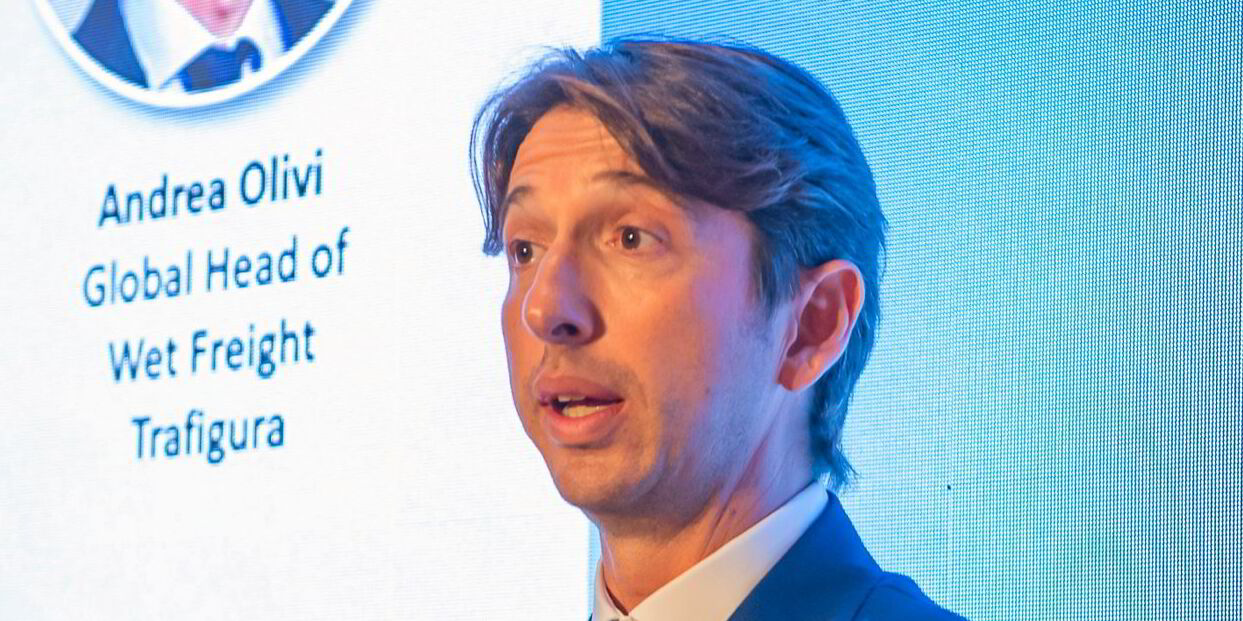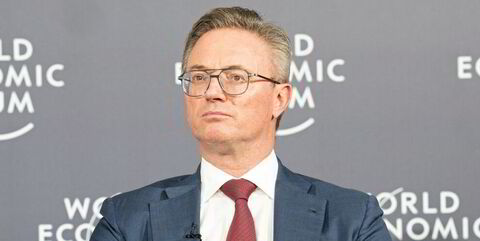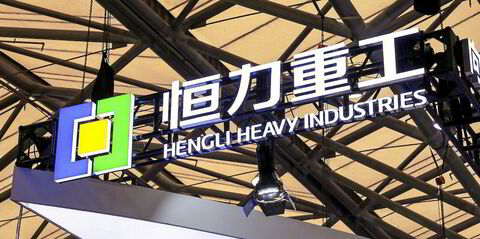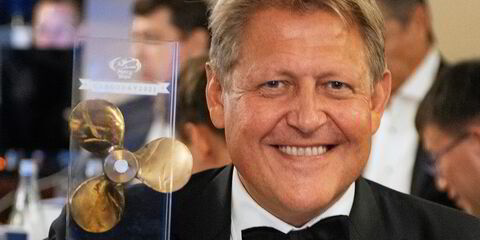A Trafigura joint venture has reached a deal with two John Fredriksen-backed companies to supply biofuels in two key bunkering hubs.
The agreement comes as the Swiss trading giant expects biofuels to be a key tool for meeting the European Union’s FuelEU Maritime rules, which will put gradually tightening limits on the carbon intensity of energy used by ships, beginning in January.
A spokesperson for Trafigura told TradeWinds that the company has signed an agreement with bunker venture TFG Marine to supply a B30 biofuels blend in Singapore and the Antwerp, Rotterdam and Amsterdam region.
TFG is a joint venture comprising Trafigura and Fredriksen’s Golden Ocean Group and Frontline.
The deal covers the full 2025 calendar year and can supply any of the more than 300 vessels on Trafigura’s wet freight book, the spokesperson said.
Financial details were not provided.
In Wednesday’s episode of TradeWinds’ Green Seas podcast, Trafigura global head of wet freight Andrea Olivi said the company favours biofuels as the “main measure” to reduce shipping emissions quickly.
Supplier aims
He said Trafigura believes it is well-positioned to supply the fuel due to its involvement in TFG and its acquisition of UK biodiesel producer Greenergy in March.
Olivi described the supply deal with TFG as part of Trafigura’s commitment to burn biofuels in its owned and time-chartered fleet.
Trading giant Trafigura has highlighted five key ways that it believes the industry could use to tackle greenhouse gas emissions from vessels.
Biofuels: A B30 biofuels blend could cut greenhouse gas intensity by 25%, compared with using low-sulphur fuel oil.
Energy efficiency technologies: Silicone hull coatings, wake equalising ducts and other kit could slash emissions by 10%, compared with an unmodified vessel.
Slow steaming: Operating at slower speeds can cut emissions by up to 19%.
Data and digitalisation: Better routing and fuel savings can reduce emissions by 10% through the use of digital technologies.
Emissions capture: Capturing methane slip and CO2 emissions could reduce 10% to 20% of total greenhouse gas output.
“FuelEU Maritime was a big driver behind us doing that, but my hope is that in the future we will be able to burn more and more biofuels in our fleet,” he said.
In a recent insight briefing on the five ways Trafigura believes shipping can tackle near-term decarbonisation goals, it said using B30 biofuels can cut the greenhouse gas intensity of a ship by 25% compared with using low-sulphur fuel oil.
B30 is a blend that contains 30% fatty acid methyl esters, also known as FAME or biodiesel, which is made from vegetable oil, animal fats or used cooking oils. The remaining 70% is very low-sulphur fuel oil.
While biofuel supply is constrained by the availability of sustainable feedstock, it is attractive because of its ability to drop into existing ships.
“When I look at biofuel procurement today, I can tell you that it’s mostly container companies and car carriers that are active,” Olivi said.
“Hopefully, with FuelEU Maritime and other regulations in the future, we will see the tanker segment and the dry bulk segment also increasing the uptake of biofuels.”
Trafigura, a major charterer that carries out more than 5,000 voyages a year with a fleet that numbers 400 ships under management at any one time, is aiming to reduce its vessels’ greenhouse gas intensity by 25% by the end of its 2030 fiscal year, compared with 2019 levels.
In the 2024 Sea Cargo Charter report, the company’s emissions were 9.2% to 13.6% above a track to the International Maritime Organization’s targets, which aim for net zero by 2050. However, more than 75% of the roughly three dozen ship operators in the report were even farther off track.

As TradeWinds has reported, the company sees FuelEU Maritime as a significant driver of lower-carbon fuels — and not just biofuels.
Olivi said ammonia was also a major in the company’s decision to order four ammonia-fuelled gas carriers.
Read more
- Trafigura: Shipowners and charterers will boost investment in lower-carbon fuels as new law kicks in
- Gearbulk takes orderbook to six with latest newbuilding deal
- Trafigura says Red Sea tanker diversions will cause 4.5% rise in emissions this year
- Okeanis Eco cleans up VLCCs to carry diesel in ‘LR4’ spot trades
- Sea Cargo Charter signs up mining and metals company South32



